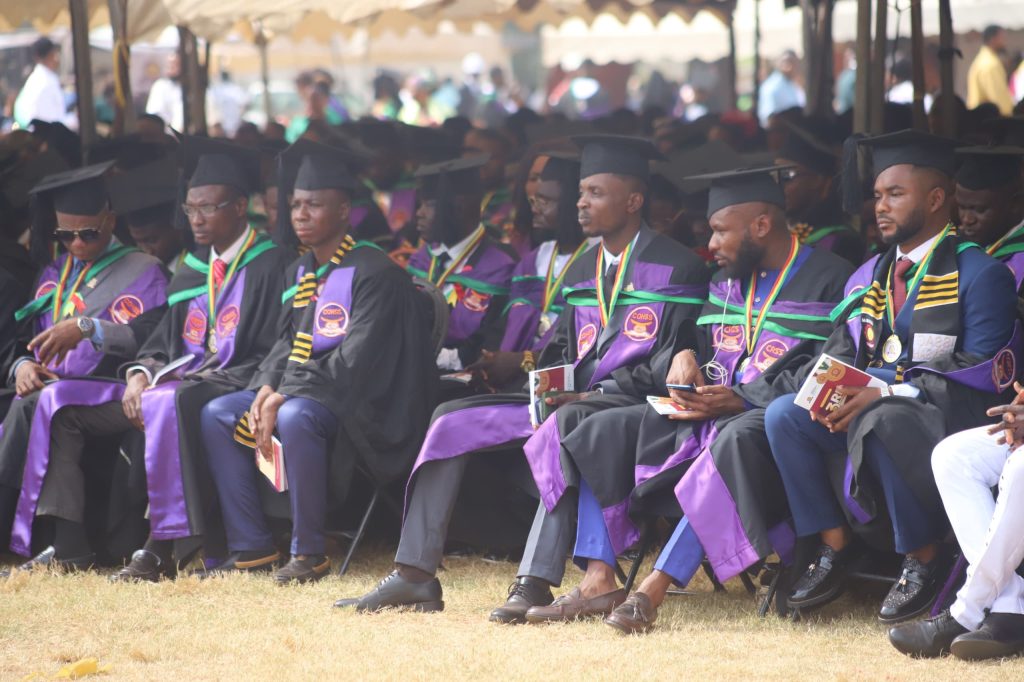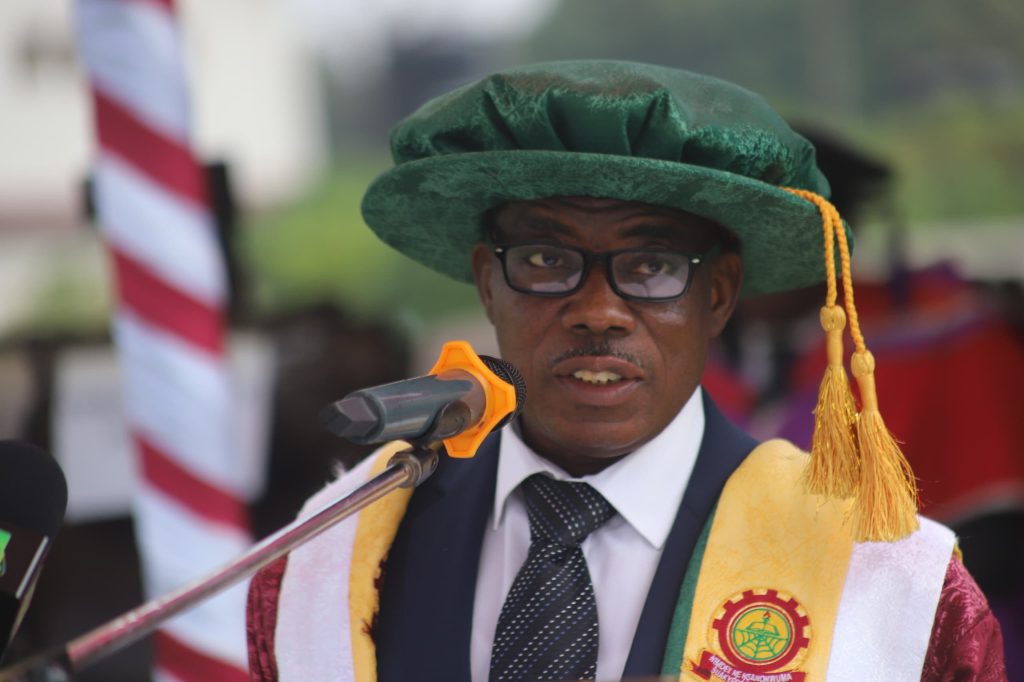By Kwabia Owusu-Mensah
Kumasi Jan. 11, GNA – Mr Francis K. E. Nunoo, Deputy Director General of the Ghana Tertiary Education Commission (GTEC), has called on tertiary institutions to embrace and support strong governance procedures.
They should encourage open and honest culture, making sure that internal controls were robust, ensure diversity and give academic leadership the authority to advance the institutions.
By doing this, they could ensure that the relevance, quality and integrity of the education they provided matched the demands of the twenty-first century.
Addressing the third congregation of the Akenten Appiah-Menka University of Skills and Entrepreneurial Development (AAMUSTED) in Kumasi, Mr Nunoo pointed out that, tertiary educational establishments ought to be managed with the same professionalism and honesty as any other global operating business, with transparent accountability frameworks that enabled them to fulfil their missions.
A total of 8,274 students made up of 62 percent males and 38 percent females were conferred with certificates, diplomas, Bachelor’s, Masters’ and PHD degrees.
They included one (1) PHD degree, 376 masters’ degrees, 6,469 Bachelors’ degrees, 1,428 diplomas and certificates.

Mr Nunoo urged tertiary institutions to focus on their mandate and niche areas.
He said AAMUSTED should focus on its unique vision that aligned education with practical skills, hands-on learning, and entrepreneurial thinking qualities that made the institution a crucial driver of innovation and economic development in Ghana.
Mr Nunoo said the success of universities, be it traditional and technical, laid in their ability to identify and develop specializations that reflected national and global needs.
He said institutions that stuck to their mandate and invested deeply in their unique strengths would continue to produce graduates who were not only academically competent, but also equipped with the skills that the workforce desperately required.

Professor Frederick Kwaku Sarfo, Vice Chancellor of the University, commended the government for establishing the university to facilitate the implementation of the transformative TVET, entrepreneurship, and industrialization agenda.
He said the university had developed 86 new academic programmes related to TVET, ATVET, STEM and other entrepreneurial education in consultation with other stakeholders.
The aim is to foster entrepreneurial mindset, skills, and knowledge among students to enhance their employability and job creation capabilities in line with the university’s core mandate to provide higher education in technical, vocational and entrepreneurial training to develop skilled manpower for job creation and economic development.
Prof. Sarfo mentioned students’ residential accommodation, inadequate lecture halls and laboratories, staff accommodation and modern health facilities, as some of the challenges facing the young university and called on the government for support.
Baffour Owusu Asare Amankwatiah VI, Bantamahene, who represented the Asantehene, Otumfuo Osei Tutu II, urged the graduands to make maximum use of the skills they had acquired to impact positively on their communities, society and the nation as a whole.
They should use the entrepreneurial skills to develop and grow their businesses to help create employment for themselves and others.
GNA